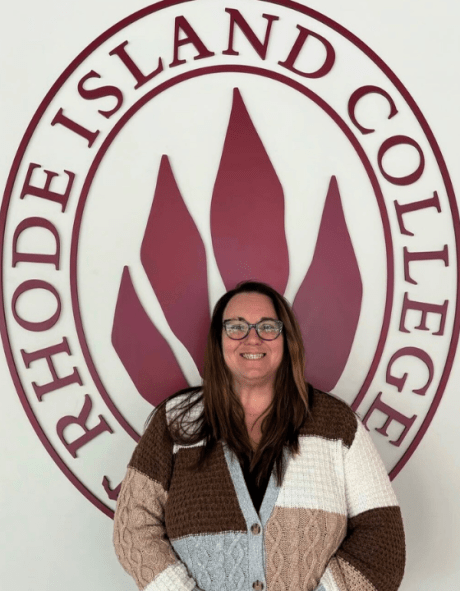
The Sherlock Center’s traineeship gives future professionals experience creating resources, supporting projects and learning about national disability policy.
As a trainee, Chelsea Frade worked on projects that promoted advocacy and inclusion for people with disabilities. These experiences may help guide her future career as a social worker.
She heard about the traineeship from a parent of a child she worked with. “She knew I was also getting my master’s in social work and thought it would be an enriching experience for my future career. She was right!” she said.
“I have many personal and professional connections to the disability world. I am always inspired by the prospect of learning more and working with that population,” she said.
As a trainee, Chelsea worked with the Youth and Adult Services project. She helped make materials on emergency preparation for people with disabilities. She also helped start a Rhode Island chapter of the Sibling Leadership Network, a support group for siblings of people with disabilities.
Her work went beyond Rhode Island when she went to the Disability Policy Seminar in Washington, D.C., in April. She also was one of the first to see “Best Judgement: Ladd School Lessons,” which the Sherlock Center co-presented last fall.
The traineeship made a big difference in her career path. “It helped deepen my passion for inclusion and for expanding the rights and advocacy for people with disabilities,” she said. “It gave me valuable information, which helped bolster what I was also learning in my social work program.” This includes research, literature reviews and writing grants.
Today, she is finishing the final year of her MSW program at Rhode Island College, where she works as a graduate assistant. She also serves as a Personal Assistance Services and Supports (PASS) treatment coordinator.
Frade said her time as a trainee was “a once-in-a-lifetime experience" and said the program is important. “Programs such as the traineeships build community and spread awareness and knowledge to new people who may not have had the opportunity to interact with the disability population before.”
She believes continued federal funding is essential. “UCEDDs serve people with disabilities throughout their lifespan. They help to fill the gaps and help connect people with much-needed support and information,” she said.
Chelsea Frade of Westerly is a Master of Social Work student and graduate assistant at Rhode Island College. She completed a University Center for Excellence in Developmental Disabilities (UCEDD) traineeship at the Sherlock Center in the 2024-25 academic year.
